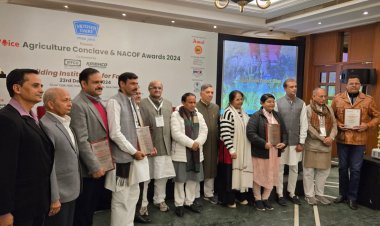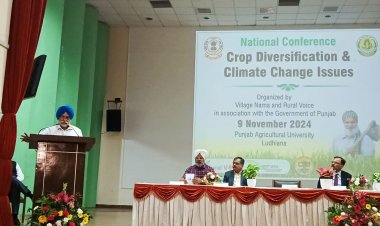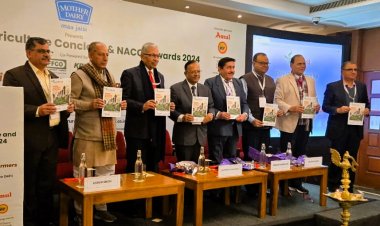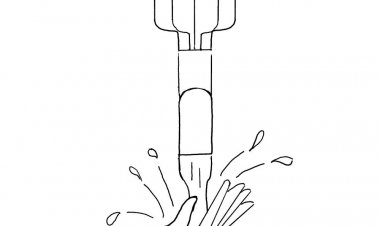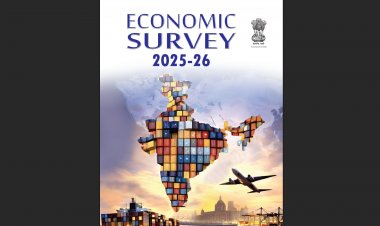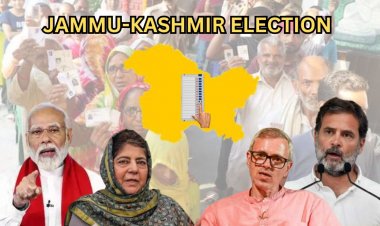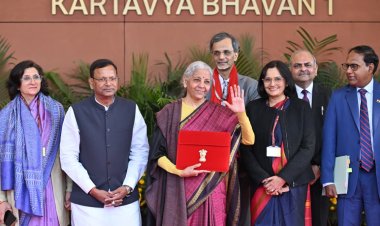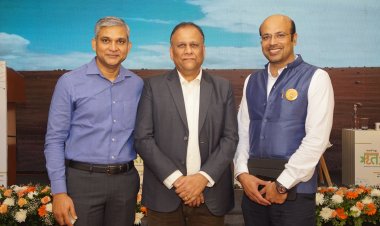Uttarakhand to become organic state in two years says, cooperative minister Dhan Singh Rawat
Rawat shared that interest-free loans of Rs 1 to Rs 5 lakh have been provided to 1.2 million farmers in Uttarakhand, and none of these loans have become NPA. He also mentioned other initiatives in the state, including the creation of the Model Sadhan Cooperative Society, which is now being implemented in other states. He emphasised that development is only possible if farmers progress, highlighting challenges like shrinking agricultural land, declining soil fertility, and a growing population.
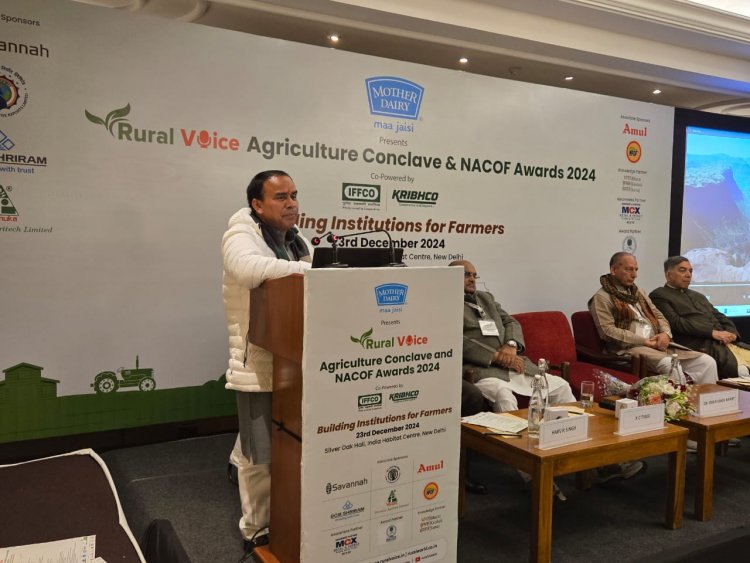
The state of Uttarakhand will become fully organic in two years. Out of the 95 blocks in the state, 62 have already been made organic, and 47 of them have been certified. This information was shared by Dhan Singh Rawat, the Cooperative and Education Minister of Uttarakhand, while addressing the Rural Voice Agriculture Conclave and NACOF Awards 2024 as the chief guest. He stated that several initiatives in the cooperative sector in the state are being adopted by other states. The theme of the conclave was ‘Building Institutions for Farmers.’
Rawat shared that interest-free loans of Rs 1 to Rs 5 lakh have been provided to 1.2 million farmers in Uttarakhand, and none of these loans have become NPA. He also mentioned other initiatives in the state, including the creation of the Model Sadhan Cooperative Society, which is now being implemented in other states. He emphasised that development is only possible if farmers progress, highlighting challenges like shrinking agricultural land, declining soil fertility, and a growing population.
The conclave featured four panel discussions. The first session focused on ‘Next-Generation Cooperatives for Next-Generation Agriculture’. The second session was ‘Private Sector: Farmers' Participation’. In the third session, experts shared their views on ‘Public Institutions for Farmers’. The fourth session of the conclave focused on ‘Enabling Policy Environment for the Growth of Institutions for Farmers’.
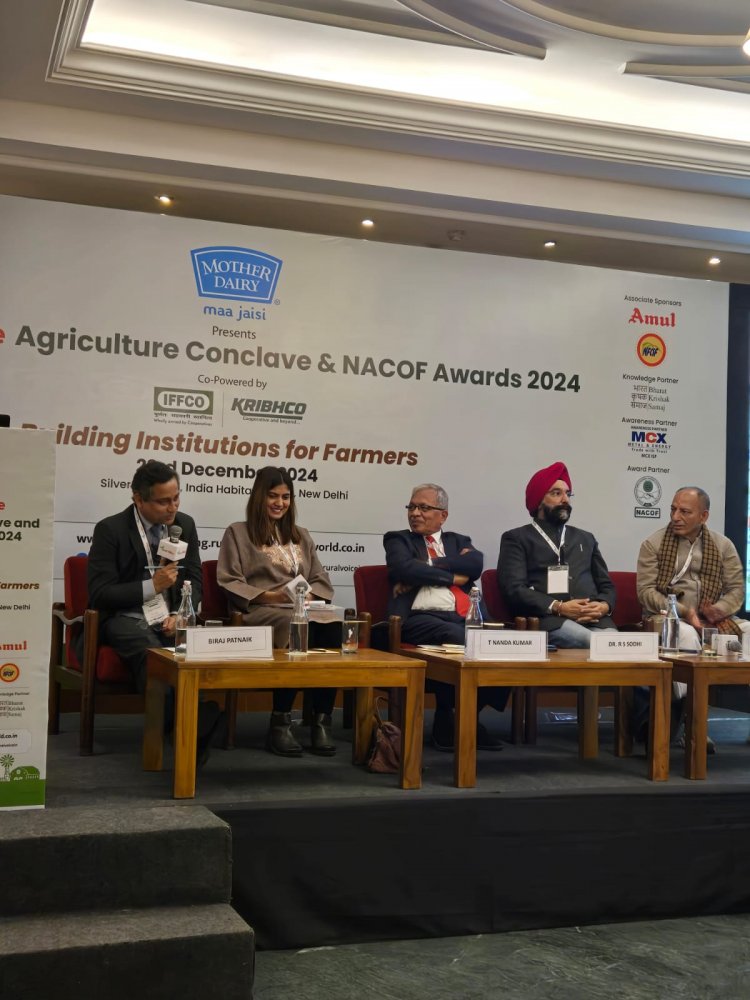
Former Agriculture and Food Secretary T. Nand Kumar pointed out that the maximum profit in the value chain goes to those closest to the consumer, which has been the reason for Amul's success. He also stated that while cooperatives were initially successful, they later began to fail. Farmers need to understand their ownership as shareholders, manage institutions effectively, and take responsibility.
Former Agriculture Secretary Siraj Hussain highlighted the lack of focus on agricultural infrastructure in the budget despite a declaration of ₹11 lakh crore for infrastructure. He stressed the need for government investment in APMCs and R&D.
Former IAS officer and ex-Director General of the National Productivity Council, Sandeep Kumar Nayak, stated that the cooperative sector contributes 30-32% to the country's GDP. He emphasized the need to highlight the cooperative sector's role in research and urged promoting animal husbandry and fisheries to increase protein intake.
Former Director of the Indian Agricultural Research Institute (IARI), Dr. A.K. Singh, noted that 2,900 crop varieties have been developed over the past decade, with over 2,600 being climate-resilient. He suggested the private sector should develop new varieties for pulses and oilseeds.
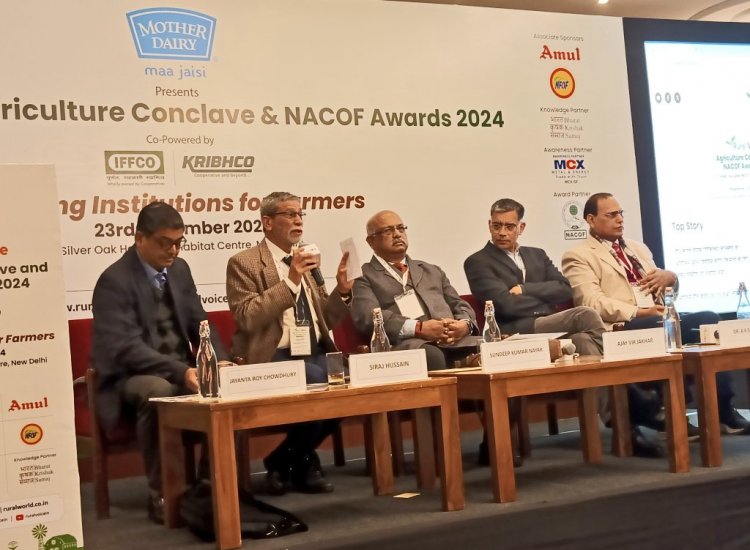
Devendra Kumar Singh, Chairman of the Cooperative Election Authority, stated that public trust in the cooperative sector has grown in the four years since the establishment of the Ministry of Cooperation. He advised farmers to move beyond MSP, diversify crops, and explore larger domestic and international markets.
Prakash Naiknavare, Managing Director of the National Federation of Cooperative Sugar Factories Limited (NFCSF), shared that cooperatives annually disburse around ₹36,000 crore to farmers and are focusing on innovations in milling and product development to increase farmers’ incomes.
Anupam Kaushik, Managing Director of NCEL, discussed institutional needs, stating that India has 14.1 crore hectares of net sown area farmed by 14.7 crore farming families. He highlighted that China's agricultural productivity surpasses India's due to better organizational efforts.
Ajay Rana, CEO & MD of Savanna Seed Pvt. Ltd., shared that India’s seed market is worth ₹40,000–42,000 crore, less than 10% of the global seed market. He stressed the importance of using better seeds, as seen in China's higher agricultural income despite having less arable land.
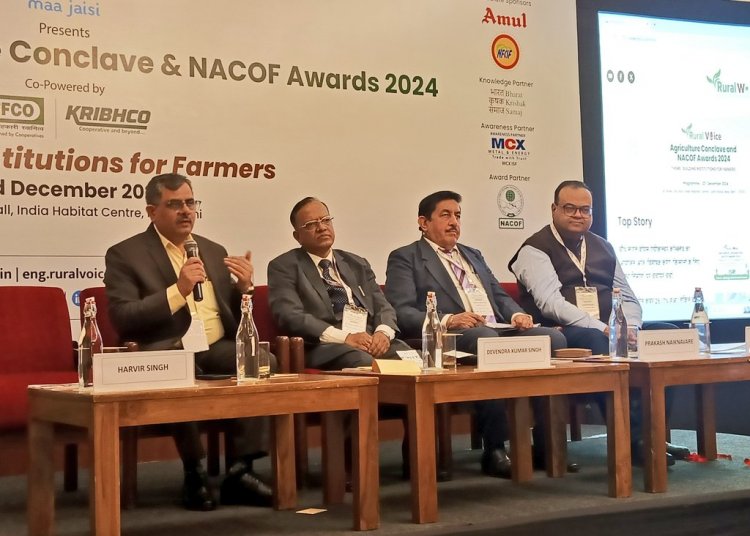
Rajeev Yadav, COO of MNC AgriCorp India Trade Services Pvt. Ltd., stated that the private sector significantly contributes to agriculture by setting up warehouses, providing credit facilities, and playing a major role in seed R&D, global linkages, and increasing productivity.
Sanjay Gakhar, Vice President (Business Development) of MCX, emphasized the need for farmers to decide when and at what price to sell their produce. He noted the benefits of commodity exchanges in providing future price insights.
Ajay Vir Jakhar, Chairman of Bharat Krishak Samaj, criticized public institutions for failing to deliver services effectively and suggested that private institutions be engaged in delivering services. Dr. D.N. Thakur, Chief Patron of Sahakar Bharati, questioned the need for numerous policies for farmers and emphasized that policies should be practical and implementable.
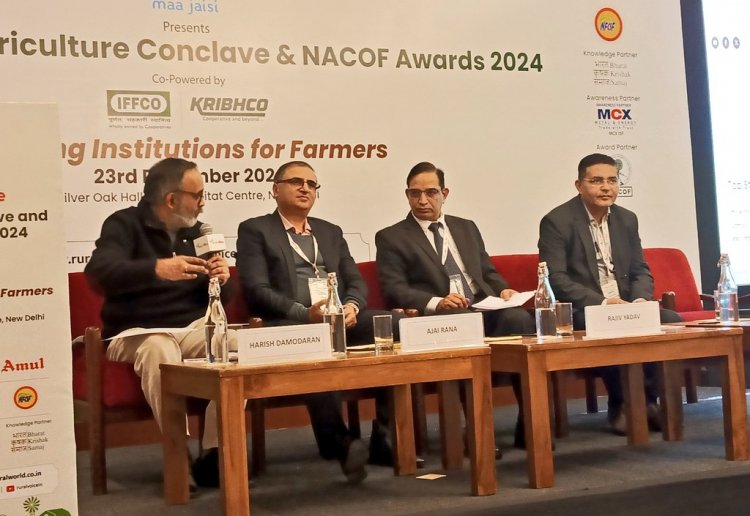
Dr. R.S. Sodhi, President of the Indian Dairy Association, stressed the need for cooperatives to be both social and commercial institutions, stating that the development of India, particularly rural India, is possible through cooperatives.
Former MP and political advisor to the Bihar Chief Minister, K.C. Tyagi remarked that just as India was a colony of the British, farmers have become colonies of urban areas, producing for the cities. He pointed out that the country’s 16 crore farmers owe ₹21 lakh crore in debt, averaging ₹1.3 lakh per farmer.
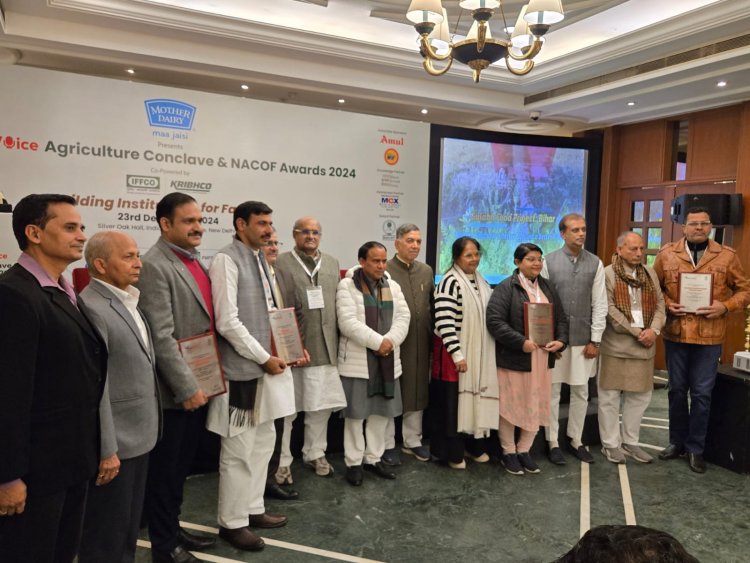
On this occasion, awards were presented to individuals and organizations excelling in the agricultural sector. The recipients included Umesh Kumar from Shamli, Uttar Pradesh (farmer category), Uttarakhand Cooperative Silk Federation Limited (cooperative category), NCDC (public sector institution category), and Sulabh International School of Action Sociology and Sociology of Sanitation (social sector institution category). The awards were presented by Dhan Singh Rawat, Uttarakhand’s Minister of Education and Cooperation.



 Join the RuralVoice whatsapp group
Join the RuralVoice whatsapp group

















